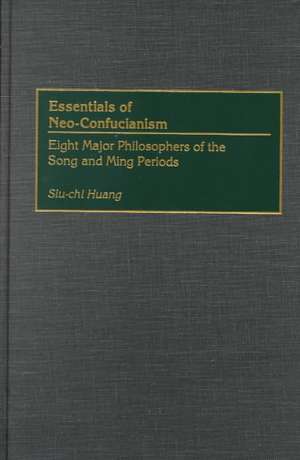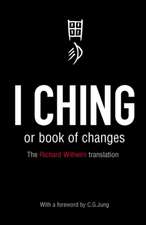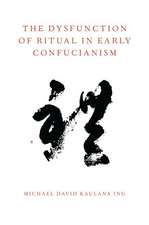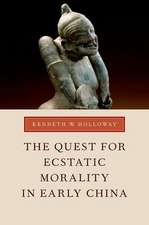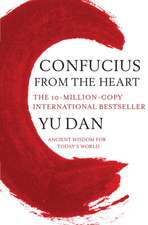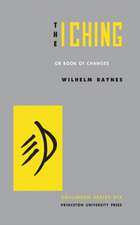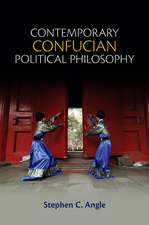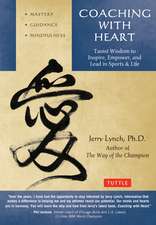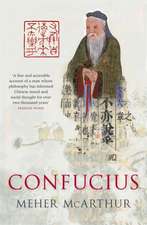Essentials of Neo-Confucianism: Eight Major Philosophers of the Song and Ming Periods: Resources in Asian Philosophy and Religion
Autor Siu-Chi Huangen Limba Engleză Hardback – 29 noi 1999 – vârsta până la 17 ani
Preț: 272.43 lei
Preț vechi: 469.68 lei
-42% Nou
Puncte Express: 409
Preț estimativ în valută:
52.15€ • 56.66$ • 43.83£
52.15€ • 56.66$ • 43.83£
Carte tipărită la comandă
Livrare economică 21 aprilie-05 mai
Preluare comenzi: 021 569.72.76
Specificații
ISBN-13: 9780313264498
ISBN-10: 031326449X
Pagini: 280
Dimensiuni: 156 x 235 x 25 mm
Greutate: 0.63 kg
Editura: Bloomsbury Publishing
Colecția Greenwood
Seria Resources in Asian Philosophy and Religion
Locul publicării:New York, United States
ISBN-10: 031326449X
Pagini: 280
Dimensiuni: 156 x 235 x 25 mm
Greutate: 0.63 kg
Editura: Bloomsbury Publishing
Colecția Greenwood
Seria Resources in Asian Philosophy and Religion
Locul publicării:New York, United States
Notă biografică
Siu-chi Huang is professor emerita of philosophy and former department chair of Beaver College in Pennsylvania. She received her PhD from the University of Pennsylvania and an honorary doctorate of letters from Beaver College. In addition to being a former visiting professor at the University of Hawaii, Xiamen (Amoy) University, and Fudan University (Shanghai), Dr. Huang is also the author of Lu Hsiang-shan: A Twelfth Century Idealist Philosopher (1944) and Zhang Zai (1987). Works Dr. Huang has translated include George Berkeley's Three Dialogues Between Hylas and Philonous and Josiah Royce's Sources of Religious Insight.
Cuprins
PrefaceHistorical and Philosophical ContextsNorthern Song 960-1126Zhou Dun-yi (1017-1073)Shao Yong (1011-1077)Zhang Zai (1020-1076)Cheng Hao (1032-1085)Cheng Yi (1033-1107)Southern Song 1127-1279Zhu Xi (1130-1200) (I)Zhu Xi (II)Lu Xiang-shan (1139-1193)Ming Dynasty 1368-1643Wang Yang-ming (1472-1529)ConclusionGlossaryBibliographyIndex
Recenzii
The student and general reader will find this a ready-reference.
This text makes an excellent source- and reference-book, both for the student of Chinese culture as well as for those interested in general themes of philosophy, metaphysics, and ethics.
This text makes an excellent source- and reference-book, both for the student of Chinese culture as well as for those interested in general themes of philosophy, metaphysics, and ethics.
